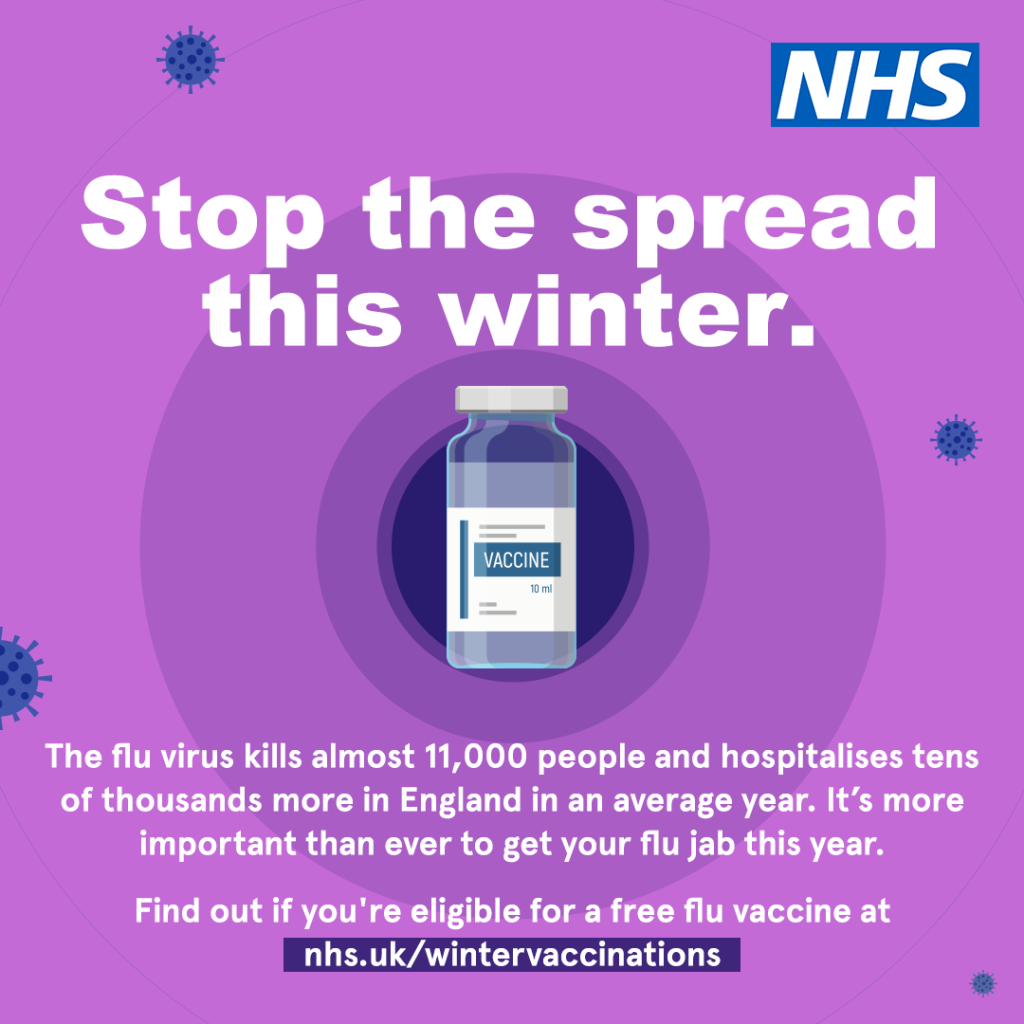Nottingham and Nottinghamshire CCG
Flu

Flu occurs every year, usually in the winter, which is why it’s sometimes called seasonal flu. It is caused by influenza viruses that infect the windpipe and lungs, and because it’s caused by viruses and not bacteria, antibiotics won’t treat it.
How do you catch flu?
When an infected person coughs or sneezes, they spread the flu virus in tiny droplets of saliva over a wide area. These droplets can then be breathed in by other people or they can be picked up by touching surfaces where the droplets have landed.
You can prevent the spread of the virus by covering your mouth and nose when you cough or sneeze, and you can wash your hands frequently or use hand gels to reduce the risk of picking up the virus.
But the best way to avoid catching and spreading flu is by having the vaccination before the flu season starts.
Who should have a flu vaccination?
The flu vaccine is given free on the NHS to people who:
- are 50 and over (including those who’ll be 50 by 31 March 2022)
- have certain health conditions – read more here.
- are pregnant – read more here.
- are in long-stay residential care
- receive a carer’s allowance, or are the main carer for an older or disabled person who may be at risk if you get sick
- live with someone who is more likely to get infections (such as someone who has HIV, has had a transplant or is having certain treatments for cancer, lupus or rheumatoid arthritis)
- frontline health or social care workers
- Children in certain age groups – read more here.
Where to get your flu jab
You can have the NHS flu vaccine at:
- your GP surgery
- a pharmacy offering the service
- your midwifery service if you’re pregnant
- a hospital appointment
For more information, visit the NHS flu page.
Flu vaccine and coronavirus (COVID-19)
This year, because of Covid-19, it’s more important than ever before that you get your flu vaccination if you’re in one of the eligible groups. This is because:
- more people are likely to get flu this winter as fewer people will have built up natural immunity to it during the COVID-19 pandemic
- if you get flu and COVID-19 at the same time, research shows you’re more likely to be seriously ill
- getting vaccinated against flu and COVID-19 will provide protection for you and those around you for both these serious illnesses
If you’ve had COVID-19, it’s safe to have the flu vaccine. It will still be effective at helping to prevent flu.
Flu vaccine and Covid-19 booster vaccine
Some people may be eligible for both the flu and the COVID-19 booster vaccines. If you are offered both vaccines, it’s safe to have them at the same time.
Find out more about the COVID-19 booster vaccine here.

